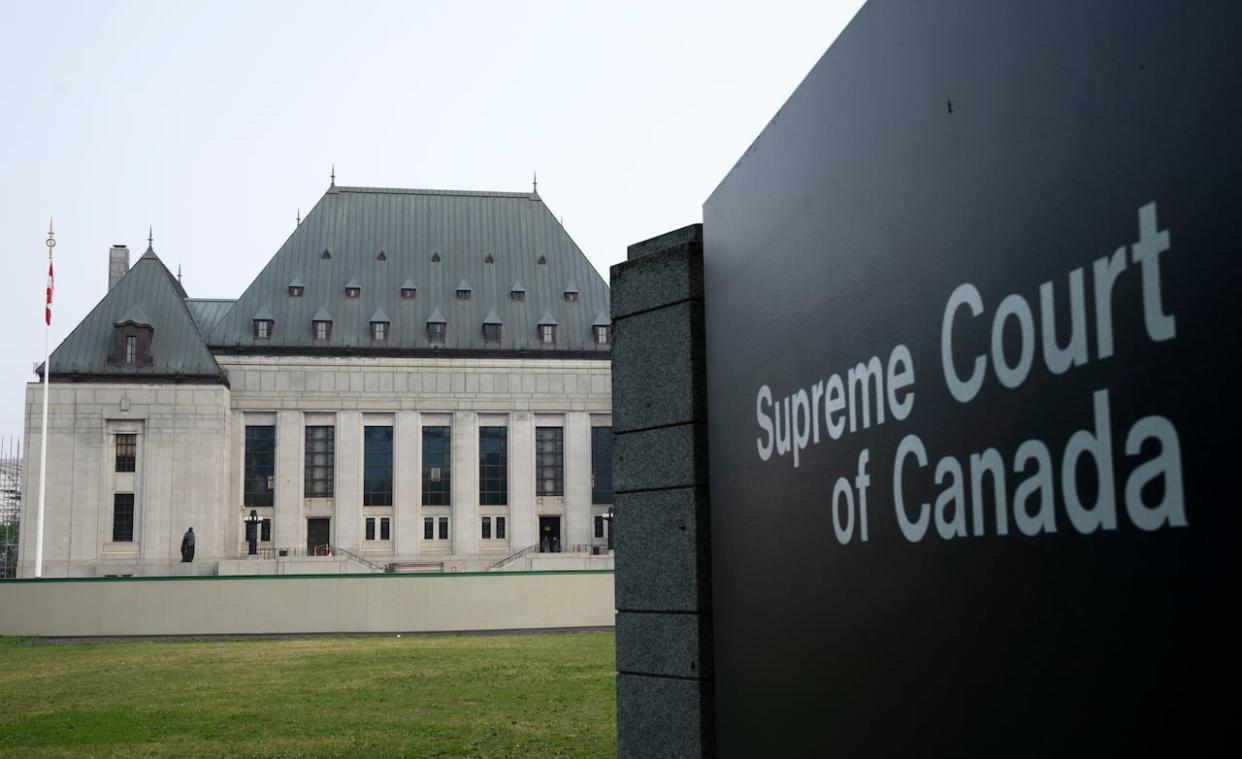FAE joins English Montreal School Board's fight against Quebec's secularism law

Quebec's largest English-language school board has a new ally in its fight against Quebec's secularism law, commonly known as Bill 21.
Following the English Montreal School Board (EMSB), the Fédération autonome de l'enseignement (FAE) announced it filed a petition with the Supreme Court of Canada to challenge Bill 21.
The FAE represents more than 66,500 teachers across seven regions. Bill 21, which passed in 2019, bars public school teachers, police officers, judges and government lawyers, among other civil servants in positions of authority, from wearing religious symbols — such as hijabs, crucifixes or turbans — while at work.
In a Monday news release, the FAE said it is particularly opposed to the use of the notwithstanding clause, which allowed the Quebec government to adopt the law without being able to challenge it under the Canadian Charter of Rights and Freedoms.
In February, the minister responsible for secularism, Jean-François Roberge, tabled a bill aimed at renewing the notwithstanding clause for another period of five years.

Jean-François Roberge speaks at a news conference in Quebec City. (Karoline Boucher/The Canadian Press)
The FAE says Quebecers must be wary of the ease with which parliaments use the notwithstanding clause.
"It's certainly one of the most important debates we are facing right now," said lawyer Frédéric Bérard, who is representing the FAE.
"You don't suspend fundamental rights for no reason. We don't. You don't suspend fundamental rights just because you want to be elected again. You don't suspend fundamental rights just for the fun of it, just to please the majority."
He said governments across the country are using the notwithstanding clause too loosely and it's time for the courts to better regulate it.
The FAE wants the country's highest court to reconsider the verdict handed down this winter by the Court of Appeal, which validated Bill 21 and said the law does not violate the linguistic rights of English-speaking school boards.
Earlier this month, the EMSB voted to take its challenge of Bill 21 to the Supreme Court.
"We have always maintained that Bill 21 violates the rights of Quebec citizens," Joe Ortona, chair of the EMSB, said at the time.
"It discriminates against people of religious minorities. It hinders their opportunities to teach within our system. And it disproportionately targets, of all the groups, Muslim women."
Mélanie Hubert, president of the FAE, told Radio-Canada's Tout un matin the FAE is also defending the rights of teachers who wish to wear religious symbols. She said the fundamental rights of FAE's members have been attacked by Bill 21.
Bernard Drainville, the province's education minister, questioned the FAE's approach
"I'm quite puzzled by their decision to go before the courts," said Drainville. "And if I were a teacher, member of the FAE, I may have a question with regards to the proper use of the money I give to the union."
Drainville insisted Quebec's law, at its core, ensures freedom of religion, equality for all, especially for men and women, no matter if they're religious.

